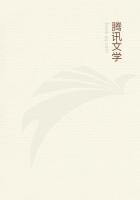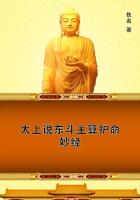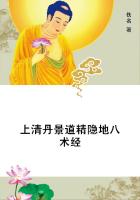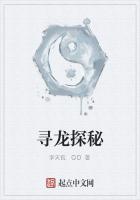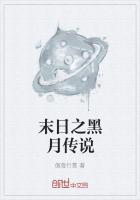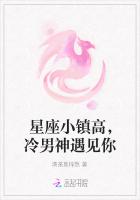I infer, from the fact of this preference that I had already begun to read Pope, and that I must have read the "Deserted Village" of Goldsmith.
I fancy, also, that I must by this time have read the Odyssey, for the "Battle of the Frogs and Mice" was in the second volume, and it took me so much that I paid it the tribute of a bald imitation in a mock-heroic epic of a cat fight, studied from the cat fights in our back yard, with the wonted invocation to the Muse, and the machinery of partisan gods and goddesses. It was in some hundreds of verses, which I did my best to balance as Pope did, with a caesura falling in the middle of the line, and a neat antithesis at the end.
The story of the Odyssey charmed me, of course, and I had moments of being intimate friends with Ulysses, but I was passing out of that phase, and was coming to read more with a sense of the author, and less with a sense of his characters as real persons; that is, I was growing more literary, and less human. I fell in love with Pope, whose life I read with an ardor of sympathy which I am afraid he hardly merited. I was of his side in all his quarrels, as far as I understood them, and if I did not understand them I was of his side anyway. When I found that he was a Catholic I was almost ready to abjure the Protestant religion for his sake; but I perceived that this was not necessary when I came to know that most of his friends were Protestants. If the truth must be told, I did not like his best things at first, but long remained chiefly attached to his rubbishing pastorals, which I was perpetually imitating, with a whole apparatus of swains and shepherdesses, purling brooks, enamelled meads, rolling years, and the like.
After my day's work at the case I wore the evening away in my boyish literary attempts, forcing my poor invention in that unnatural kind, and rubbing and polishing at my wretched verses till they did sometimes take on an effect, which, if it was not like Pope's, was like none of mine.
With all my pains I do not think I ever managed to bring any of my pastorals to a satisfactory close. They all stopped somewhere about halfway. My swains could not think of anything more to say, and the merits of my shepherdesses remained undecided. To this day I do not know whether in any given instance it was the champion of Chloe or of Sylvia that carried off the prize for his fair, but I dare say it does not much matter. I am sure that I produced a rhetoric as artificial and treated of things as unreal as my master in the art, and I am rather glad that I acquainted myself so thoroughly with a mood of literature which, whatever we may say against it, seems to have expressed very perfectly a mood of civilization.
The severe schooling I gave myself was not without its immediate use.
I learned how to choose between words after a study of their fitness, and though I often employed them decoratively and with no vital sense of their qualities, still in mere decoration they had to be chosen intelligently, and after some thought about their structure and meaning.
I could not imitate Pope without imitating his methods, and his method was to the last degree intelligent. He certainly knew what he was doing, and although I did not always know what I was doing, he made me wish to know, and ashamed of not knowing. There are several truer poets who might not have done this; and after all the modern contempt of Pope, he seems to me to have been at least one of the great masters, if not one of the great poets. The poor man's life was as weak and crooked as his frail, tormented body, but he had a dauntless spirit, and he fought his way against odds that might well have appalled a stronger nature.
I suppose I must own that he was from time to time a snob, and from time to time a liar, but I believe that he loved the truth, and would have liked always to respect himself if he could. He violently revolted, now and again, from the abasement to which he forced himself, and he always bit the heel that trod on him, especially if it was a very high, narrow heel, with a clocked stocking and a hooped skirt above it.
I loved him fondly at one time, and afterwards despised him, but now I am not sorry for the love, and I am very sorry for the despite. I humbly, own a vast debt to him, not the least part of which is the perception that he is a model of ever so much more to be shunned than to be followed in literature.
He was the first of the writers of great Anna's time whom I knew, and he made me ready to understand, if he did not make me understand at once, the order of mind and life which he belonged to. Thanks to his pastorals, I could long afterwards enjoy with the double sense requisite for full pleasure in them, such divinely excellent artificialities at Tasso's "Aminta" and Guarini's "Pastor Fido"; things which you will thoroughly like only after you are in the joke of thinking how people once seriously liked them as high examples of poetry.
Of course I read other things of Pope's besides his pastorals, even at the time I read these so much. I read, or not very easily or willingly read at, his 'Essay on Man,' which my father admired, and which he probably put Pope's works into my hands to have me read; and I read the 'Dunciad,' with quite a furious ardor in the tiresome quarrels it celebrates, and an interest in its machinery, which it fatigues me to think of. But it was only a few years ago that I read the 'Rape of the Lock,' a thing perfect of its kind, whatever we may choose to think of the kind. Upon the whole I think much better of the kind than I once did, though still not so much as I should have thought if I had read the poem when the fever of my love for Pope was at the highest.

